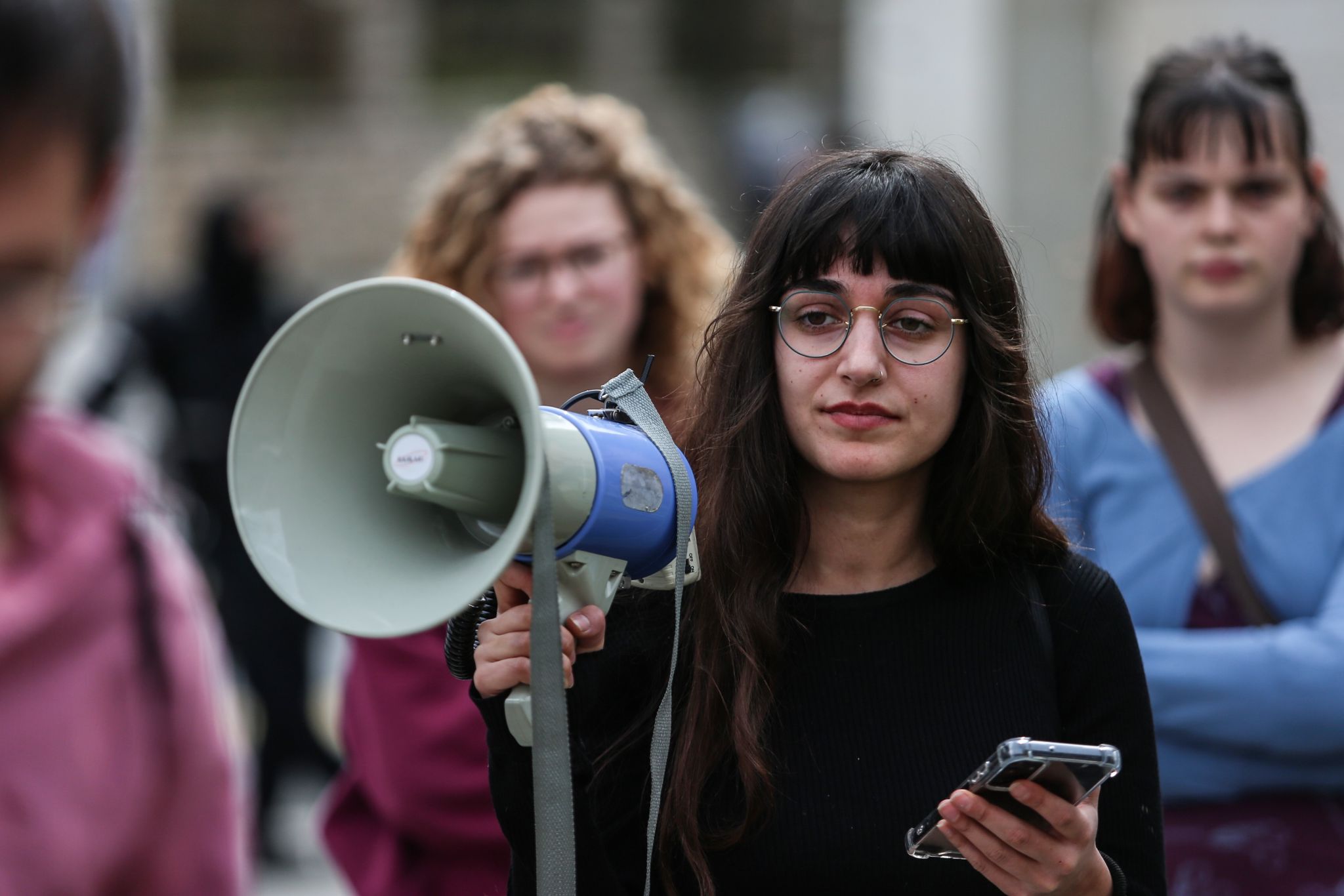Noa, 24, speaks about her anti-apartheid efforts in Israel and resistance to the war in Gaza
Noa is speaking from West Jerusalem, her gentle voice slightly muffled by the melodies of Shabbat prayers in the background.
“If you understand that Israel is conducting a genocide,” she says, “then it’s the worst time in the world to be an Israeli”. For now, she has put aside any questions about what it means to be an Israeli, saying simply: “there’s an urgent state and you have to act”.
Noa is a 24-year-old self-described anti-Zionist peace activist from Israel. She is a member of Free Jerusalem, an activist group focused on “apartheid resistance”. Before the war, this group of West Jerusalemites supported communities in East Jerusalem resisting home evictions and demolitions by the Israeli government.
Since October last year, their efforts have shifted towards campaigning against the current war in Gaza. “It just seems to get worse and even more cruel,” she says. “And I keep feeling angrier and more powerless.” She feels shame at her government’s actions.
Days before our conversation, Israeli prime minister Benjamin Netanyahu had rejected a hostage deal with Hamas and the prospect of a ceasefire. At this point in mid-May, reports indicated over 34,971 Palestinians and over 1,200 Israelis and foreign nationals killed have been killed, with many more injured.
Alongside Free Jerusalem, which Noa calls “reactionary” in its activism (protests, demonstrations, road blockages), she also takes part in so-called “protective presence”. This involves visiting Palestinian communities in the West Bank’s Jordan Valley and Masafer Yatta area and documenting any abuse that Palestinians suffer from the Israeli army and “extreme settlers”.
“If there are Israeli activists,” she says, “there’s less of a chance that the settlers will strike that village and build settlements”. Though there are significantly fewer activists in Jerusalem than in Tel Aviv – Israel’s liberal epicentre – Noa explains how their proximity to the West Bank makes them “the most radical”.
“From my neighbourhood,” she says, “if I cross the road and look out, the occupation is right there”. Since 1967, East Jerusalem and the West Bank have been occupied by the Israeli military. “Jerusalem is perhaps the only city in Israel where you cannot ignore the occupation,” Noa explains. “Half of the people in the city don’t have citizenship.”
Noa’s mother is an activist too, though their approaches differ. For Noa, “being an activist means acting in the field”. Her mother, a journalist and editor of a Hebrew magazine, prefers writing about marginalised Palestinian and Israeli communities.
Growing up, Noa was always conscious of “a lot of racism towards Palestinians,” but she never expected the divisions that have surfaced in her country over the past seven months.
“Before the war, I at least thought that the people living here – that we as Israelis – have some solidarity with each other,” Noa says. “But now we’ve reached the point that people are actually willing to sacrifice their own hostages to continue this massacre in Gaza.”
Noa finds herself in a minority in more ways than one. She believes in a one-state solution to the conflict: a single secular Israeli state where citizens have equal rights. A poll by the Geneva Initiative earlier this year found that just 2.9 per cent of Israelis favoured a type of one-state solution, with no mention of such a state’s religious status.
One might assume that openly holding such views is isolating and even scary for Noa and her family, but Noa feels “powerful” within her communities.
“As long as you’re Israeli and Jewish, there’s a limited number of repercussions, even if you speak very boldly,” she says. She compares her position to that of Nadera Shalhoub-Kevorkian, the Palestinian professor at Hebrew University – where Noa herself studied – who was arrested earlier this year after accusing Israel of conducting a genocide.
Noa sees herself as an optimistic person. Even so, it seems difficult to find optimism with all that is happening near her.
“I’ve stopped thinking about questions about my identity as an Israeli,” she says. Noa pauses for a moment. “I think these questions will come when I’m no longer in Israel.”
Feature Image: Noa. Photo credit: Noa.

